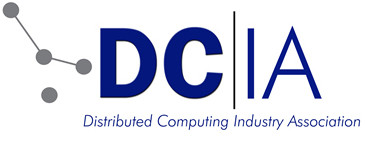In This Issue
- Cloud’s Big $ Impact
- Verizon to Buy Yahoo
- NetApp Is Primed
- Report from the CEO
- FBI Probes DNC Hack
- DNC Scandal Shows
- GOP Cyber-Platform
- Security Integration
- A Standard for IoT
- Cloud the New Normal
- 3 Mobile Cloud Truths
- Comprehensive IoT
- Demystify Big Data
- NetApp EMEA SVP
- GE Predix Tackling
- FCC Privacy Course
- Coming DCIA Events
Cloud Computing’s Big Disruptive Multiple Hundred Billion Dollar Impact
Excerpted from Fortune Report by Barb Darrow

Another day, another report about how cloud computing will upend the way businesses buy and use technology.
This time out, market research firm Gartner said $111 billion worth of IT spending will shift to cloud this year, and that number will almost double to $216 billion by 2020.
The move to cloud computing, which has given traditional hardware and software providers heartburn for years now, will thus become “one of the most disruptive forces of IT spending” since the beginning of the computing era, Gartner analysts said in a new research note.
That’s because many companies ranging from tiny startups to Fortune 500 behemoths that previously bought and maintained their own computer servers, storage, and networking gear in their own data centers are now shifting to having other companies handle it for them.
Public cloud providers that rent out these shared computing resources include Amazon, Microsoft, Google, IBM, or some other provider.
A benefit is that the customer pays for the computing, storage, and power they use, but once they stop using it, the meter turns off… Read More
Why Verizon Wants to Buy Yahoo
Excerpted from Washington Post Report by Todd Frankel, Brian Fung, and Hayley Tsukayama
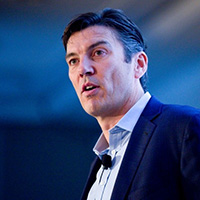
Two years ago — an epoch in Silicon Valley time — AOL chief executive Tim Armstrong proposed a merger to Yahoo chief executive Marissa Mayer.
Armstrong and Mayer are former Googlers hired to run and rescue these former marquee Internet destinations.
But AOL and Yahoo were struggling in an increasingly mobile online world dominated by Google and Facebook.
Mayer rejected Armstrong’s offer.
But now that AOL-Yahoo merger is set to take place in a wholly unexpected manner — thanks to Verizon, the largest US phone carrier.
On Monday, Verizon and Yahoo announced that the telecom giant agreed to buy the ailing Internet company in a $4.8 billion deal.
Last year, Verizon bought AOL for $4.4 billion.
“A year ago we acquired AOL to enhance our strategy of providing a cross-screen connection for consumers, creators, and advertisers… Read More
NetApp Is Primed for Flash Storage, Cloud, and Next-Gen Data Center
Excerpted from CRN Report by Joseph Koyar
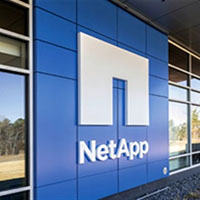
NetApp, a company whose sales and earnings have been hit over the past couple years, is navigating through a number of industry transitions and expects to come through a stronger company ready for the cloud and all-flash data centers.
That’s the message from NetApp executives to customers attending a series of executive briefings, including one held Wednesday in San Diego that was attended by CRN.
The event featured NetApp co-founder and Executive Vice President Dave Hitz and Henri Richard, the company’s new executive vice president for worldwide field and customer operations.
It is a message that resonates with the channel, said Scott Miller, director of data center business at World Wide Technology, a St. Louis-based solution provider and longtime NetApp channel partner.
“What Hitz and Richard said are completely aligned with what they are telling the channel,” Miller told CRN.
“It seems like NetApp has sorted itself out. Our business in the first half of this calendar year is much better than last year.”
NetApp still has work to do, and it would be beneficial for the company to move into new areas that many of its competitors are in… Read More
Report from DCIA CEO Marty Lafferty
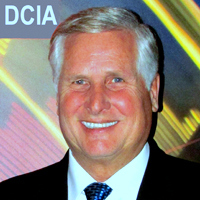
President Obama this week issued a new presidential policy directive (PPD) intended to clarify responsibilities within the federal government for responding to online security breaches and cyber-attacks.
The move follows an increase in the occurrence of such incidents that have impacted agencies, companies, and individuals with growing frequency.
The timing of the President’s announcement coincides with revelations about Democratic National Committee digital security lapses including recent private email leaks.
Key to his directive is its coordination of federal resources to counter different types of cyber-attacks, which have ranged from ransomware to espionage.
While the Department of Homeland Security (DHS) is charged with protecting offices of government and serving as a liaison with the private sector, the FBI investigates breaches, and the NSA controls forensics used to combat cyber-attacks.
Other departments and bureaus within the federal government play additional roles, interfacing with multiple industries at numerous levels to defend against attacks.
It’s no secret that rapidly expanding activity in this space has led to confusion about responsibility, authority, reporting procedures, and communications — and resultant criticisms about a lack of consistency.
The new PPD creates a unified coordination group to respond to large-scale cyber incidents, more tightly organizing the development, prioritization, and execution of cyber-response efforts.
One aspect of the directive is a new metric that rates the severity of cyber-incidents on a scale from 0 to 5 based on their danger to public health or safety, national or economic security, foreign relations, civil liberties, or public confidence.
A level 0 event is considered unsubstantiated or inconsequential.
At level 3 or higher a breach is considered significant and will be met with new coordination mechanisms among senior level officers from different agencies.
A level 5 event is one that poses an imminent threat to the provision of wide-scale critical infrastructure services, national government stability, or the lives of US persons, which will be addressed with additional measures.
The new system directs agencies to notify each other quickly after they learn of a breach, to expedite any federal response.
Excluded from the scope of the PPD are branches of the military. Share wisely, and take care.
FBI Probing DNC Hack
Excerpted from Politico Report by Nick Gass

The Federal Bureau of Investigation (FBI) has launched a probe into the hacking of the Democratic National Committee’s (DNC) emails, the bureau announced Monday.
“The FBI is investigating a cyber-intrusion involving the DNC and are working to determine the nature and scope of the matter,” the agency said in a statement.
“A compromise of this nature is something we take very seriously, and the FBI will continue to investigate and hold accountable those who pose a threat in cyberspace.”
The publication of the approximately 20,000 emails showed a DNC favorable to Hillary Clinton over Bernie Sanders, leading Chairwoman Debbie Wasserman Schultz to announce her resignation on Sunday, effective at the end of the party’s convention this week.
The Clinton campaign suggested on Sunday that Russia had played a role in the affair, with Campaign Manager Robby Mook saying that the Kremlin is trying to help Donald Trump.
On Monday, Mook pointed to reporting by the NY Times citing researchers… Read More
DNC Scandal Shows What Must Be Done to Prevent Breaches
Excerpted from eWeek Report by Wayne Rash
 As this is written, Debbie Wasserman Schultz, Chairwoman of the Democratic National Committee (DNC), has resigned under pressure and effectively been forced off the stage of her party’s convention.
As this is written, Debbie Wasserman Schultz, Chairwoman of the Democratic National Committee (DNC), has resigned under pressure and effectively been forced off the stage of her party’s convention.
But the release of thousands of emails from the DNC showing how the party leadership conspired to keep Senator Bernie Sanders from winning the Presidential nomination is not all bad, because it revealed the fact that the breach took place.
While the leak is a huge embarrassment for the party as it prepares to nominate its Presidential candidate, it’s really mainly a problem for a few people who were most responsible and, therefore, probably deserved it.
What would have been worse is a breach that went undiscovered while the depths of the DNC’s email were secretly mined indefinitely for information useful by its opponents, foreign or domestic. But perhaps more serious is the ongoing myth that email is somehow private or secret.
So let’s put that misconception to rest immediately.
Email is not secure and it’s not private, and acting as though it is will only get you into a world of hurt… Read More
Experts: GOP Cyber-Platform “Detrimental to Global Stability”
Excerpted from FedScoop Report by Chris Bing

The US must “stop playing defense and go on offense” online in order to avoid a “Cyber Pearl Harbor,” according to the newly released Republican Party platform.
“Despite their promises to the contrary, Russia and China see cyber-operations as a part of a warfare strategy during peacetime,” the platform states, adding, “We will make clear that users have a self-defense right to deal with hackers as they see fit.”
Security and policy experts, however, have serious reservations about the platform which was authored by Republican lawmakers and party faithful alike, and released in tandem with the GOP Convention kick-off.
One scholar fretted that Republicans would end up “destroying the internet in order to save it.”
“There is a distinct lack of clarity about rules of the road for peacetime, and the norms and laws that do and will govern offensive cyber-operations in peacetime are still highly malleable,” explained Robert Morgus, a policy analyst with DC-based think-tank New America.
“This means that operations conducted by the US and others are highly influential in shaping those rules, and pushing the red line too far… Read More
Early Security Integration Critical to Digital Transformation
Excerpted from Homeland Security Today Report by Krysta Dodd
 Organizations are making a substantial investment in digital technologies—including Internet of Things (IoT), mobile, and cloud applications and infrastructures—but there remains a significant deficit in how they are actually implementing and securing these technologies, according to a new survey by Dell Security.
Organizations are making a substantial investment in digital technologies—including Internet of Things (IoT), mobile, and cloud applications and infrastructures—but there remains a significant deficit in how they are actually implementing and securing these technologies, according to a new survey by Dell Security.
Dell Security’s report, “Digital Transformation Security Survey: A Survey of IT and Security Professionals,” polled 631 IT security decision makers working at companies with more than 1,000 employees across the United States, United Kingdom, Germany, Australia, and the Nordic countries, as well as Belgium, the Netherlands and Luxembourg.
The survey’s findings revealed a disconcerting disconnect between investment and implementation, which can be attributed to a number of challenges, particularly security, which the respondents cited as a major barrier to digital transformation.
Andy Vallila, General Manager for Dell Security’s business in the Americas, told Homeland Security Today that, “While 97 percent of survey respondents say they are investing in digital transformation, only 18 percent say security has been involved in all of these initiatives from the start.”
89 percent of respondents believe their industry is at least halfway through their digital advancement transformation… Read More
ARM & Symantec Build Security Standard for Internet of Things
Excerpted from ZDNet Report by Danny Palmer

The lack of a cohesive cybersecurity standard around the Internet of Things (IoT) and connected devices could result in highly-damaging security breaches that could compromise any industrial, corporate, or home network.
There are already billions of devices — ranging from sensors, to cars, to hospital equipment and more — connected to the internet and Gartner estimates that 5.5 million new ‘things’ are going online every single day.
Over five billion devices are currently connected and the figure is expected to rise to 20 billion by 2020.
In a world where more and more objects are coming online and vendors are getting involved in the supply chain, how can you keep track of what’s yours and what’s not?
However, there isn’t any sort of standard applied to security in Internet of Things devices, and experts are already predicting a major cybersecurity breach linked back to an unsecured connected device within the next two years.
Now companies including ARM, Intercede, Solacia, and Symantec have developed the Open Trust Protocol (OTrP), designed to provide secure architecture and code management to protect connected devices… Read More
Why Many Leading Startups Consider Cloud Computing the New Normal
Excerpted from Nibletz Report by Jane Brown
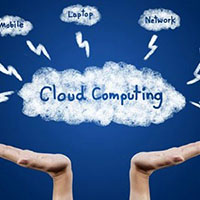
In a world of proliferating small businesses, anything you can do to differentiate your business is a huge advantage.
This is not easy if you are running a lean company, but one way for a startup to separate itself from competitors is through the cloud.
The popularity of migrating your small operations to the cloud makes perfect business sense.
The cloud provides two things that a small business desperately needs—a chance to slash cost and an opportunity to enhance productivity.
Let’s take a look at how to use the cloud and some advantages of using the cloud:
One of the nicest features of the cloud is that it accommodates human creativity. An innovative entrepreneur has the same flexibility as an artist who has a drawing tablet and is equipped with a choice of pens, pencils, and markers.
Let’s take a look at how the cloud can be used to enhance human creativity.
Many things that once required a lot of office space can now be easily transformed into their virtual equivalent… Read More
Three Urgent Truths for Mobile Cloud Computing in 2016
Excerpted from WinBeta Report by Kit McDonald

Microsoft’s development of cloud computing is reaching all-time highs as more organization, businesses, and customers pick up the streamlined services.
As an Office Blogs post released today shared, the global spending on Infrastructure as a Service is expected to reach $16.5 billion this year.
That’s only a fraction of the estimated $67 billion revenue, a number that Forbes says will be achievable by the year 2018.
Microsoft’s development of cloud computing is reaching all-time highs as more organization, businesses, and customers pick up the streamlined services.
According to the Office team, the global spending on Infrastructure as a Service is expected to reach $16.5 billion this year.
That’s only a fraction of the estimated $67 billion revenue, a number that Forbes says will be achievable by the year 2018.
In recognition of the exponential growth of cloud computing, Microsoft felt it was their duty to share a top three list of important facts. There are hybrid cloud solutions for using both a datacenter and a private cloud… Read More
How to Develop a Comprehensive IoT Strategy
Excerpted from Baseline Magazine Report by Samuel Greengard
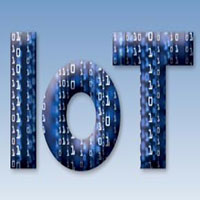
Over the last few years, the hype cycle for the Internet of Things (IoT) has at times reached a fevered pitch.
A slew of conferences, articles, research reports and press releases have touted the benefits of a highly connected and data-centric world.
Although it’s insanely easy to get caught up in all the hoopla, it would also be a mistake to downplay or dismiss the concept.
“The IoT is rapidly gaining traction,” says Craig McNeil, Managing Director of the Internet of Things Practice at Accenture Digital.
“A year or two ago, it was on everyone’s radar, and now it’s actually taking shape.”
Developing an IoT business strategy is critical.
The IoT increasingly reaches across companies and supply chains, and touches customers in multiple ways.
In fact, it’s at the foundation of today’s digital enterprise… Read More
Demystifying Big Data
Excerpted from Cloud Expo Report by William Schmarzo

The Dean of the University of San Francisco School of Management, Elizabeth Davis, recently asked me to sit on a Big Data panel at the Direct Sales Association conference.
I was given a 5-minute slot to “demystify” Big Data to a non-technical group of about 1,000 people; to help them understand where and how this thing called “Big Data” could help them.
Well if you know me, I can barely introduce myself in 5 minutes. But this was particularly challenging for me, as I’m used to talking about Big Data with organizations with at least some level of Big Data experience or understanding (maybe they should get my second book – the “Big Data MBA” – and start there!).
So I accepted the challenge, and here is what I said (and yes, I did it within the 5-minute window).
Myth #1: Every Business needs a Big Data strategy.
Reality #1: You don’t need a Big Data strategy; you need a business strategy that incorporates Big Data.
While that may sound like a “play on words,” to be success with Big Data requires a different perspective – a business-first perspective… Read More
NetApp Appoints new Senior Vice President for EMEA
Excerpted from ITNewsAfrica Report
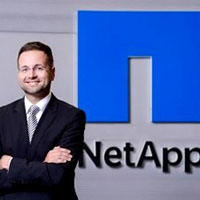
Alexander Wallner has been named NetApp Senior Vice President and General Manager EMEA, a position currently held by Manfred Reitner who will retire at the end of Q1 after nearly 20 years at the company.
Wallner joined NetApp in 1999 and most recently served as Area Vice President CEMA (Central & Eastern Europe, Middle East and Africa) and General Manager Germany, where his customer-centric philosophy led to market leading share for the last six consecutive years.
“Alexander exhibits an indomitable conviction that NetApp can win.
This quality, coupled with his track record of success, deep understanding of the markets and technology and the overwhelming support of his peers made him the clear choice for SVP and General Manager role,” said Henri Richard, Executive Vice President Worldwide Field and Customer Operations at NetApp.
“We are confident in his abilities and passion to drive the entire region forward; and once again, we extend our sincere thanks to Manfred Reitner for his many contributions.”
“We wish Manfred well as he moves into a new phase of his life… Read More
Why GE Predix Is Tackling a Harder Problem Than Amazon
Excerpted from Forbes Report by Dan Woods
 If you want to understand the next phase of the development of the internet, a paper written 14 years ago outlines the business and technology logic driving much of what is happening today.
If you want to understand the next phase of the development of the internet, a paper written 14 years ago outlines the business and technology logic driving much of what is happening today.
In 2002, while working on research for his book about the future of the internet, Out of the Box, John Hagel wrote a research paper that predicted the rise of companies called service aggregators, who would play the role of orchestrators, integrators, and guarantors of quality for the explosion of Internet services, the service grid that he and his research partner, John Seely Brown, predicted would arise.
What Hagel and Seely Brown got wrong was the importance of the web services standards and the handicapping of the companies who would eventually play the role of creating the service grid and performing service aggregation.
They predicted a major role for the telecom vendors.
But what Hagel and Seely Brown got right, in my view, is the business and technology logic that is still driving today’s market.
Hagel and Seely Brown’s vision is informative both for vendors of technology, seeking to make their products more relevant… Read More
A Growing Consensus that the FCC Must Change Course on Privacy
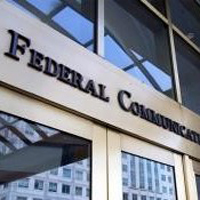 Opposition to the FCC’s proposed broadband privacy rules continues to grow.
Opposition to the FCC’s proposed broadband privacy rules continues to grow.
The recently filed “reply round” comments, new reports, and expert submissions to the Commission, and testimony before Congress all demonstrate a growing consensus that the Commission’s proposed approach is flawed and a new course must be taken—one that protects consumer data, encourages innovation and growth online, and provides consistent and evenhanded standards for all internet companies.
A broad cross-section of commenters urge the FCC to pay serious attention to the critique by the FTC staff and remain consistent with the principles in the Obama administration’s Consumer Privacy Bill of Rights.
Groups and individuals as diverse as former Clinton-era FTC official David Balto, the Multicultural Media, Telecom, and Internet Council (MMTIC), and free market advocates like Citizens Against Government Waste, urged the Commission to hit pause and align its efforts with the time-tested FTC model and the technology-neutral approach championed by the Obama Administration that tailors privacy requirements to the sensitivity of data.
These views were echoed at a recent House Energy & Commerce subcommittee hearing… Read More
Coming Events of Interest
Industry of Things World Europe — September 19th-20th in Berlin, Germany. IoT business models, new IoT markets and strategies, product lifecycle management, next generation data handling and value assessment, IoT organizational impacts, and IoT security issues.
EuroCloud Forum – October 5th-6th in Bucharest, Romania. The seventh annual EuroCloud Congress will be held for the first time in Romania. With the theme “Creating New Frontiers in European Cloud,” it will be the sector’s largest forum on the future of cloud in Europe.
Security of Things World USA — November 3rd-4th in San Diego, CA. The next event in the DCIA’s partnership with weCONECT Group has been designed to help you find pragmatic solutions to the most common security threats facing the IoT.
Rethink! Cloudonomic Minds — November 21st-22nd in London, England. The newest event in the DCIA’s partnership with weCONECT Group will cover how IoT is impacting cloud strategies and how to take advantage of these two key technology trends.
Government Video Expo — December 6th-8th in Washington, DC. GVE is the East Coast’s largest technology event for broadcast and video professionals, featuring a full exhibit floor, numerous training options, free seminars, keynotes, panel discussions, networking opportunities, and more.
